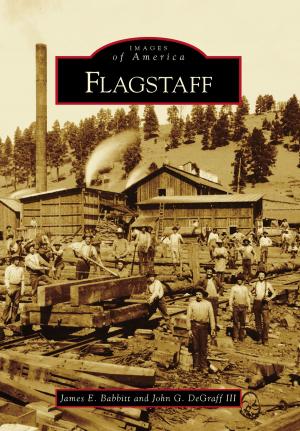| Author: | Littleton Historical Society | ISBN: | 9781439611647 |
| Publisher: | Arcadia Publishing Inc. | Publication: | September 10, 2002 |
| Imprint: | Arcadia Publishing | Language: | English |
| Author: | Littleton Historical Society |
| ISBN: | 9781439611647 |
| Publisher: | Arcadia Publishing Inc. |
| Publication: | September 10, 2002 |
| Imprint: | Arcadia Publishing |
| Language: | English |
Through vintage photographs, many never before published, Littleton connects the current generations with the town's past. Vintage photographs of homes that have changed in appearance or have been destroyed for expansion recall a time of farmhouses and open fields. The book also follows the growth of Littleton, including the emergence of the Conant-Houghton Company and the depot area, as well as the Long Lake and Lake Warren resorts.
Through vintage photographs, many never before published, Littleton connects the current generations with the town's past. Vintage photographs of homes that have changed in appearance or have been destroyed for expansion recall a time of farmhouses and open fields. The book also follows the growth of Littleton, including the emergence of the Conant-Houghton Company and the depot area, as well as the Long Lake and Lake Warren resorts.















